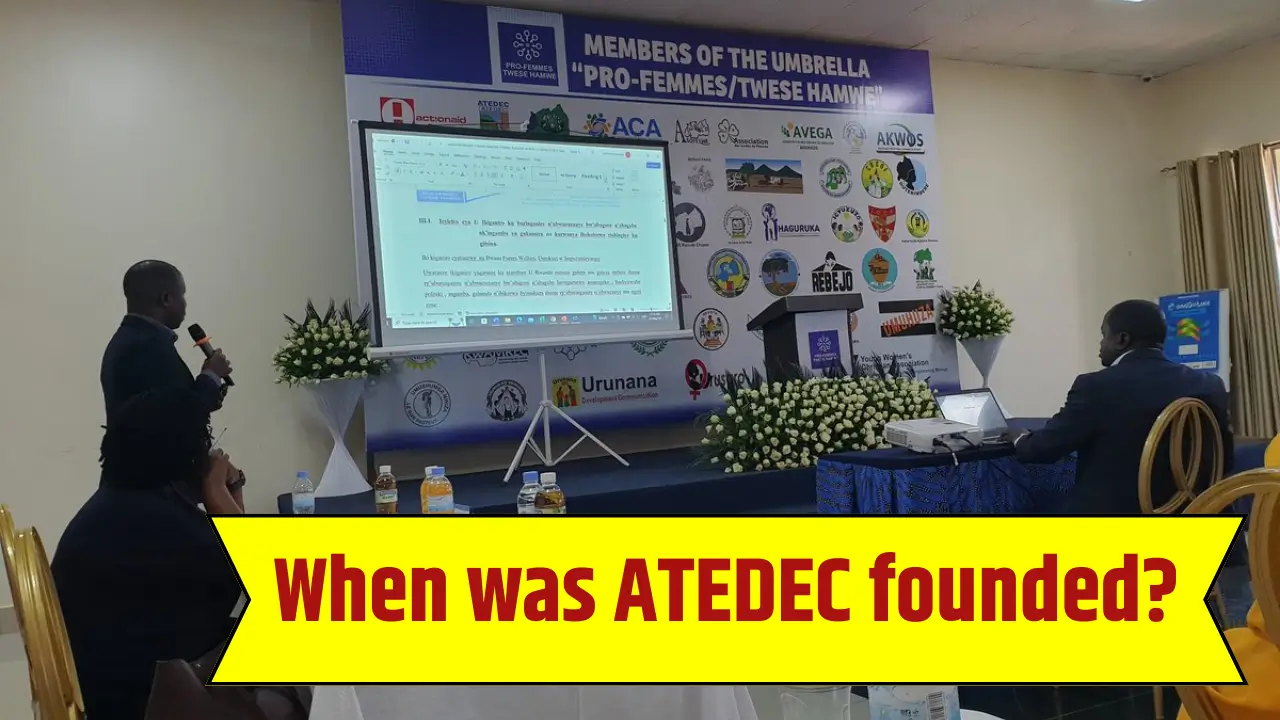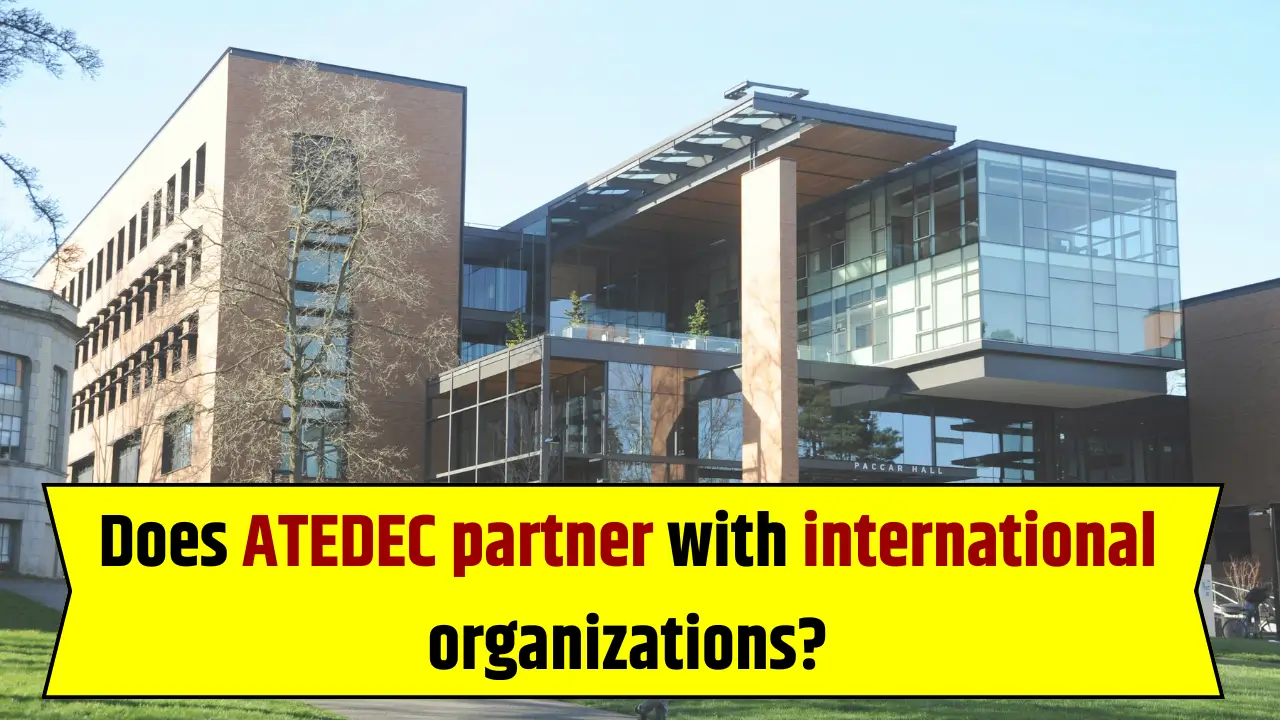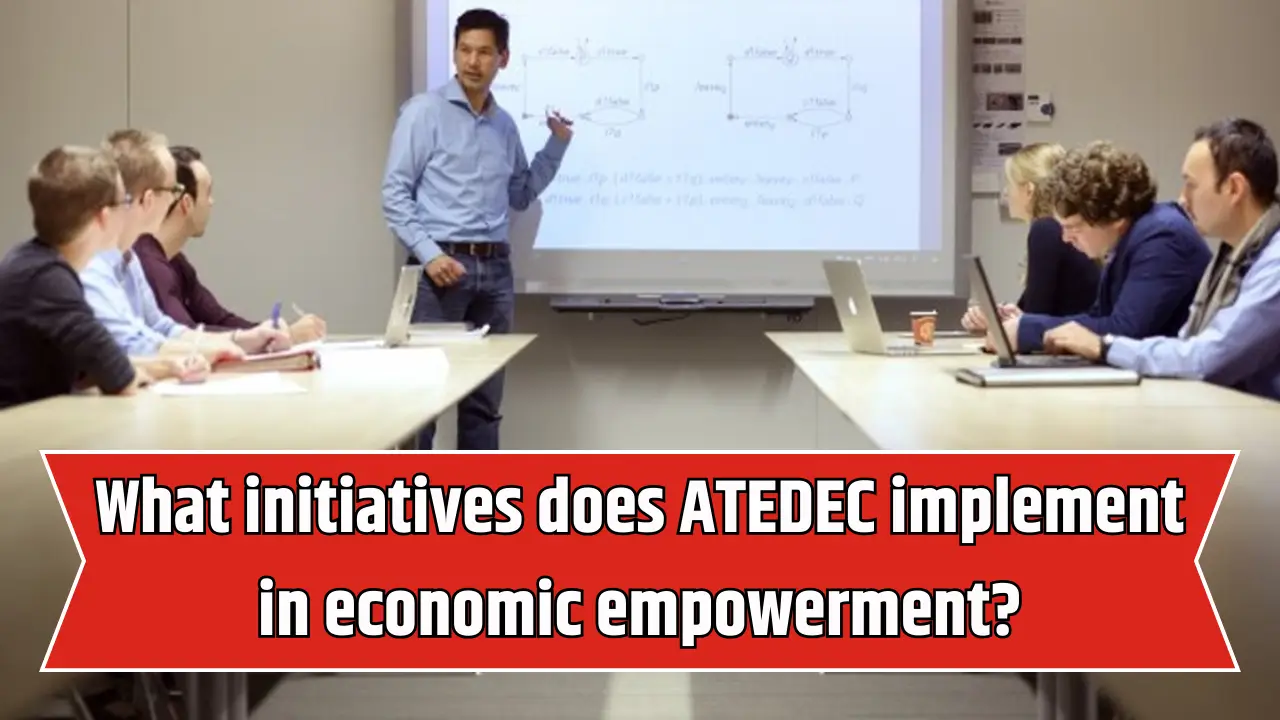To understand the impactful journey of ATEDEC, it is important to know when and why this organization was founded.
ATEDEC, an acronym for Action Technique Pour Un Developpement Communautaire (Technical Action for Community Development), is a Rwanda-based NGO dedicated to sustainable development, particularly in rural communities.
Its founding marks a significant milestone in post-genocide Rwanda when the country was rebuilding its social, economic, and community frameworks.
This article delves into the exact founding date of ATEDEC, the context surrounding its creation, initial goals, and how the organization has evolved over time, including the latest developments as of 2025.
Founding Date and Historical Context
Official Year of Establishment
- ATEDEC was formed in December 1994 and began its operations in April 1995.
- The organization was officially approved to operate legally in Rwanda on April 12, 1995, with full registration published by July 1999.
- Established just months after the tragic 1994 genocide in Rwanda, ATEDEC emerged to address urgent humanitarian and community rehabilitation needs.
Post-Genocide Rwanda: The Need for ATEDEC
- After the genocide, Rwanda faced massive devastation: chaos, lack of infrastructure, absence of housing, and scarcity of clean water.
- Millions were displaced with many lacking land, homes, or basic necessities.
- The new government had enormous tasks but limited experience and capacity.
- Citizens were encouraged to contribute actively to the country’s restoration and rebuilding.
- ATEDEC’s founder, Jonathan Gasuzuguro, envisioned an NGO focusing on technical assistance and community empowerment to support this national recovery.
Founder’s Vision and Early Challenges
The Founder: Jonathan Gasuzuguro
- Jonathan was living and working in Congo with prior NGO experience.
- He studied at the Afro-Asian Institute in Israel, enhancing his knowledge of development work.
- His passion was to empower vulnerable groups, especially youth and women, to break cycles of poverty and vulnerability.
Initial Projects and Challenges
- The immediate focus was housing for displaced families, starting with building homes for around 8,500 families across three provinces.
- Early challenges included:
- Massive resettlement needs.
- Lack of infrastructure such as clean water access.
- Social reconciliation between new immigrants and indigenous populations.
- Gradually, the focus extended to livelihood improvement, access to clean water, health awareness, and cooperative building.
Evolution of ATEDEC: Growth and Expansion
Key Phases of Development
| Year(s) | Development Focus | Description |
| 1994-1995 | Foundation and initial relief | Formation, housing projects for displaced families |
| Late 1990s | Livelihood and infrastructure | Focus on agriculture, clean water access, cooperative facilitation |
| 2000s | Health and education programs | HIV/AIDS prevention, youth training, reproductive health |
| 2010s-present | Sustainability and empowerment | Climate adaptation, disaster preparedness, digital skills training |
Expanding Mission
- From emergency relief to sustainable community development.
- Empowering women and children socially and economically.
- Capacity building for cooperative businesses.
- Environmental protection and climate change adaptation.
- Disaster preparedness and rapid response.
Major Achievements Since Founding
- Built homes for thousands of displaced Rwandan families.
- Developed community water systems managed by Water Users Committees.
- Facilitated education and skills training for vulnerable youth.
- Established cooperative enterprises with startup financing and training.
- Implemented health awareness campaigns on HIV/AIDS, Malaria, and Tuberculosis.
- Played a critical role in post-conflict reconciliation and community rebuilding.
Bulleted Highlights of ATEDEC’s Founding and Growth
- Founded in December 1994, just months after Rwanda’s genocide.
- Officially started operations in April 1995.
- Founded to meet the urgent need for housing, clean water, and infrastructure.
- Emphasized community participation and empowerment.
- Founder Jonathan Gasuzuguro brought international NGO experience.
- Early projects included building homes for 8,500 families.
- Transitioned from relief to sustainable development over the years.
- Active in rural Western Province and urban areas like Kigali.
- Collaboration with government, UN agencies, and other NGOs.
- More than 80 projects completed or ongoing since inception.
- Modern focus includes climate resilience and digital skills training.
Latest Updates Related to ATEDEC (2025)
- ATEDEC marked over 30 years of operation, celebrating its legacy of community impact.
- It has broadened partnerships with national and international organizations including African Development Bank and Global Fund.
- Introduced digital transformation programs targeting youth employment skill gaps.
- Strengthened water governance projects with local communities to address climate change impacts.
- Continuing its role in public health by enhancing HIV/AIDS and malaria prevention programs.
- Expanded disaster preparedness outreach to build resilient rural communities.
- Leveraging community radio and media channels for wider health and environmental education dissemination.
Table: Timeline of ATEDEC’s Key Milestones
| Year | Milestone or Project | Impact |
| Dec 1994 | Formation of ATEDEC | NGO established post-genocide |
| Apr 1995 | Started Housing Projects | New homes for 8,500 displaced families |
| Late 1990s | Water and Sanitation Programs | Access to clean water in rural areas |
| Early 2000s | Health Awareness Campaigns | HIV/AIDS, Malaria, Family Planning |
| 2010s | Climate Change and Environmental Projects | Community resilience and biodiversity protection |
| 2023-2025 | Digital Skills & Youth Empowerment Initiatives | New training and employment facilitation programs |
| 2025 | Strengthened Partnerships and Program Expansion | Expanded global and local cooperation |
Conclusion
ATEDEC’s founding in December 1994 represents a beacon of hope and action amid one of Rwanda’s darkest periods. Starting from immediate post-genocide challenges, ATEDEC evolved into a multifaceted facilitator of sustainable community development.
By focusing on housing, livelihoods, health, environmental protection, and youth empowerment, the organization carved a crucial path for Rwanda’s recovery and growth.
The latest progress as of 2025 shows ATEDEC’s commitment to innovation and community resilience, continuing to serve the vulnerable with tailored, sustainable solutions.
Understanding when ATEDEC was founded and the historic context provides valuable insight into the dedication, vision, and perseverance that drives its impactful work today.













